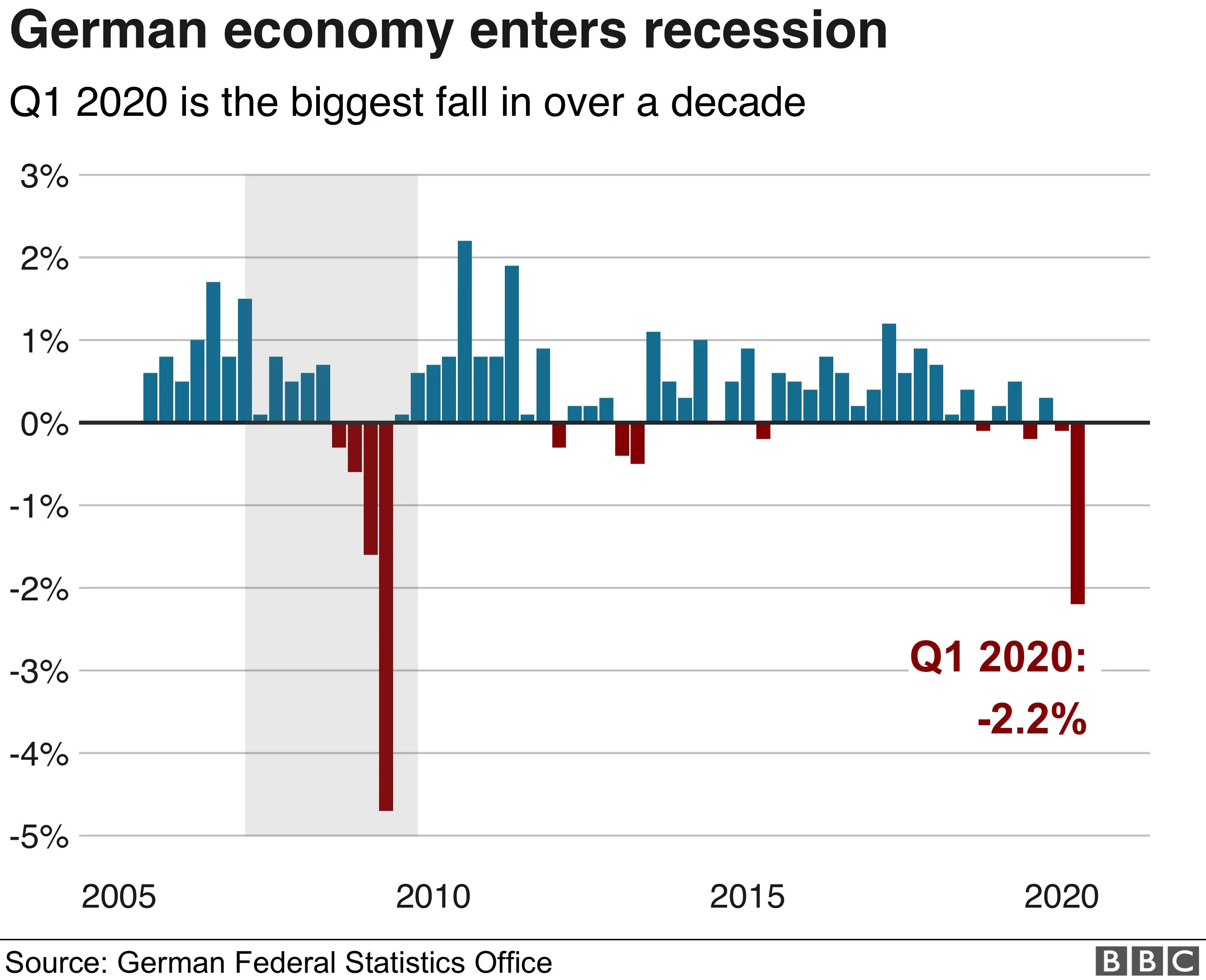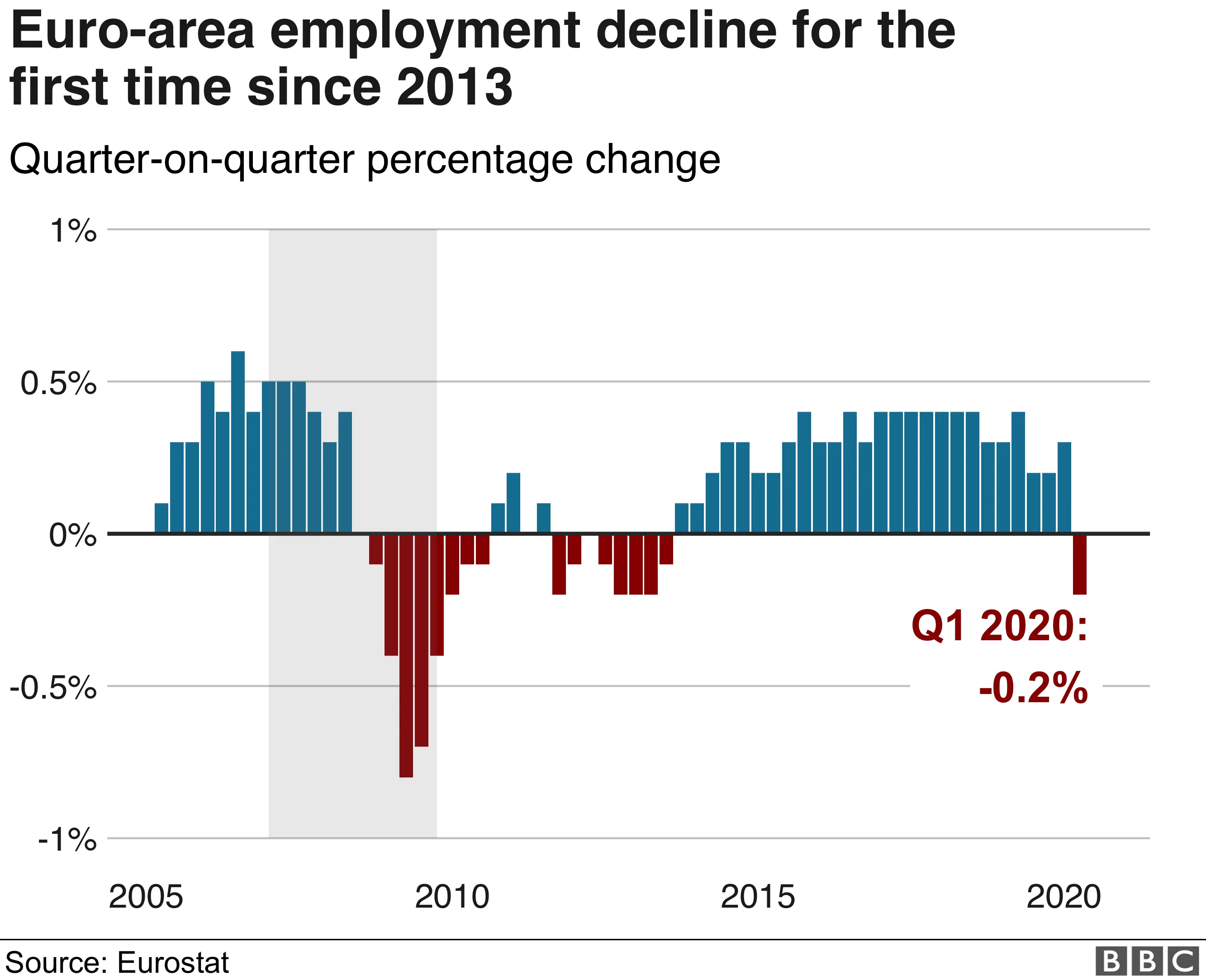Coronavirus pushes German economy into recession
 Getty Images
Getty ImagesGermany's economy shrank by 2.2% in the first three months of this year as the coronavirus pandemic pushed it into recession, official figures indicate.
It was the biggest quarterly fall since 2009, when the country was engulfed in the global financial crisis.
The figures from the Federal Statistics Office come as Germany takes its first tentative steps to exit lockdown.
Shops are reopening, pupils will gradually return to class and football is restarting behind closed doors.
At the same time, figures for the final three months of 2019 were revised to show a contraction of 0.1%.
That means German GDP growth has been negative for two successive quarters, the technical definition of a recession.

The figures are in line with market expectations, says BBC global trade correspondent Dharshini David.
The German economy was already lacklustre before the onset of the pandemic, as the US-China trade war cast a shadow over activity, our correspondent points out.
The statistics office warned that the figures were subject to extreme uncertainty, with the next estimate due out on 25 May.
Germany is Europe's largest economy, but the drop is not as bad as in some of its neighbours, such as France, which has seen a decline of 5.8%, and Italy, which reported a 4.7% fall.
This effect is partly due to a decision by Germany's 16 states to allow factories and construction sites to stay open, as well as an unprecedented rescue package by the government.
Economists expect a deeper slump in the second quarter of the year, as the full effects of the lockdown become apparent.


Germany, along with just about every other economy on the planet, has been hit by the combination of official restrictions on movement and commercial activity, as well as by personal choices to avoid the risk of infection.
Consumer spending was down and so was investment (apart from construction which, along with government spending, softened the economic blow). Germany is a big power in global trade and imports and exports were both lower.
It was a sharp contraction overall, but so far at least, the blows to the German economy have not generally been as severe as those suffered by the rest of the eurozone. The other three largest economies - France, Italy and Spain - were all hit much harder by the health crisis and have seen much larger declines in the first three months of 2020.
For the quarter now under way, Germany will take a hit, but it has an advantage compared to those others. Tourism is a smaller part of the economy and it's a sector that is facing an extremely challenging 2020 summer season.

Separate growth figures released by EU statistics office Eurostat for the eurozone as a whole confirmed an earlier estimate showing a record decline of 3.8% in the January-to-March period.
For the 27-nation EU, the equivalent figure was 3.3%.
Eurostat also issued figures showing a 0.2% fall in eurozone employment, the first such decline since 2013.

"The German economy has been tiptoeing on the edge of recession since the beginning of 2019, but it can hide no longer," said Claus Vistesen, chief eurozone economist at Pantheon Macroeconomics.
"The German business cycle expansion, which started in 2013, ended decisively in Q1, and more pain is ahead in the near term before the recovery."

- RISK AT WORK: How exposed is your job?
- GLOBAL SPREAD: Tracking the pandemic
- RECOVERY: How long does it take to get better?
- A SIMPLE GUIDE: What are the symptoms?

